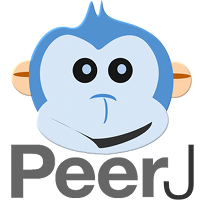This summer I submitted a paper to the innovative new open access journal PeerJ, where it was published this week (Cock et al. 2013). I decided to write up the experience in the style of the PeerJ's Interview with an Author blog posts. I've copied the questions they normally ask, and written up my own replies - other than some rough edges in their current submission system it was all good.
Update: This has been reposted on the official PeerJ blog, with responses which I have inserted below.
Bioinformatics lessons learned the hard way, bugs, gripes, and maybe topical paper reviews too...
2013-09-20
Using Travis-CI for testing Galaxy Tools
Travis CI is one of the best things to happen to GitHub in some time - it adds automated testing capabilities to your source code repository as changes are committed, and even on pull requests to help ensure new work doesn't break existing functionality.
We've been using this for Biopython for over a year, but this month I've started using TravisCI for testing my add-ons for the Galaxy Project as well. My Galaxy tools (see also Cock et al. 2013) were already being tested every night once uploaded to the Galaxy Tool Shed, and I always stage releases via the Galaxy Test Tool Shed before posting them on the main Galaxy Tool Shed. However this fixed nightly schedule isn't very flexible for debugging failures.
I've currently got TravisCI working for my two Galaxy tool repositories on GitHub. Both configurations follow the same basic approach, which I have tried to explain in this post, and run the tests as soon as I update GitHub.
We've been using this for Biopython for over a year, but this month I've started using TravisCI for testing my add-ons for the Galaxy Project as well. My Galaxy tools (see also Cock et al. 2013) were already being tested every night once uploaded to the Galaxy Tool Shed, and I always stage releases via the Galaxy Test Tool Shed before posting them on the main Galaxy Tool Shed. However this fixed nightly schedule isn't very flexible for debugging failures.
| Galaxy BLAST tools: |  |
| Galaxy sequence analysis tools: |  |
I've currently got TravisCI working for my two Galaxy tool repositories on GitHub. Both configurations follow the same basic approach, which I have tried to explain in this post, and run the tests as soon as I update GitHub.
Subscribe to:
Posts (Atom)
